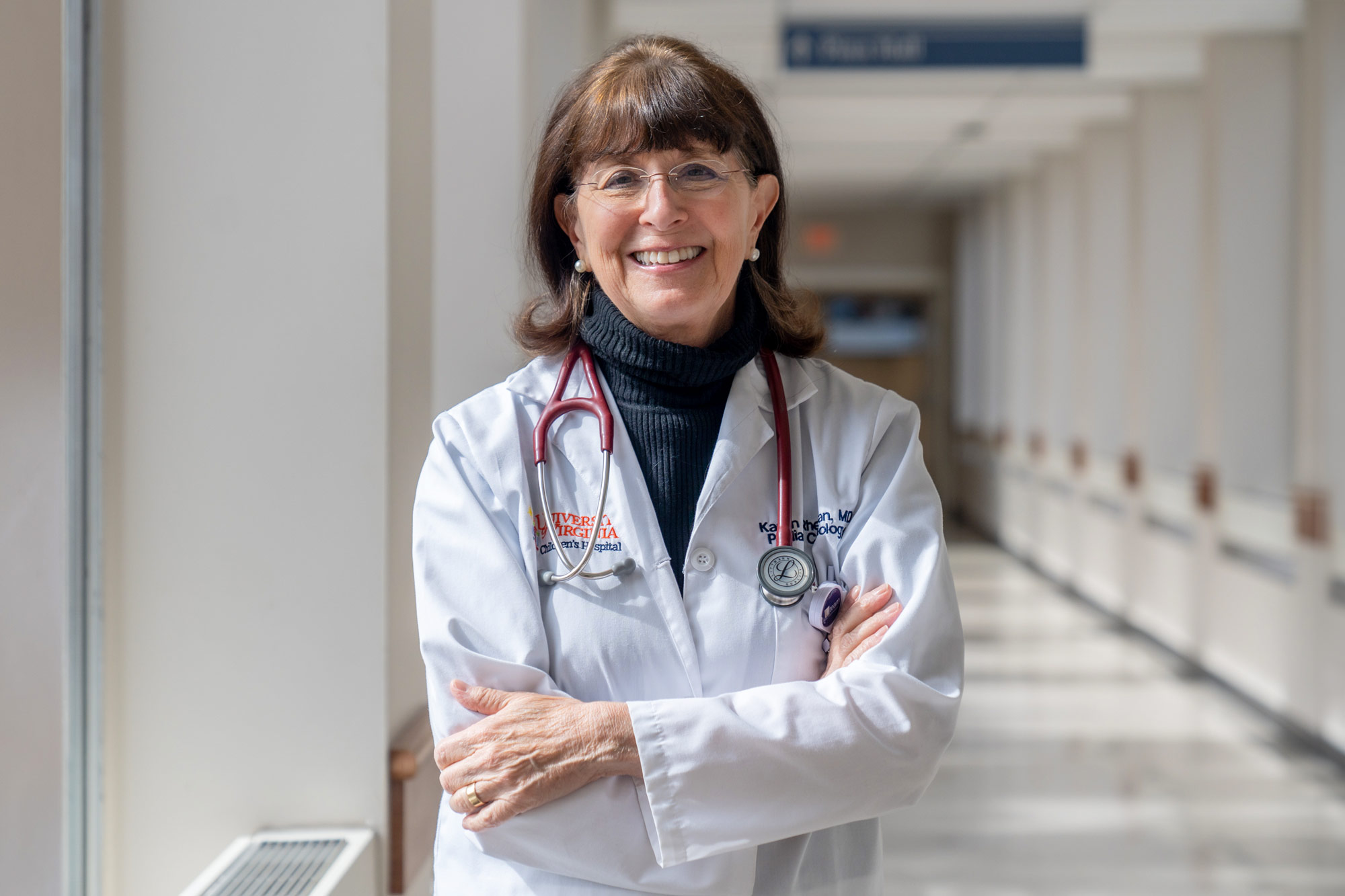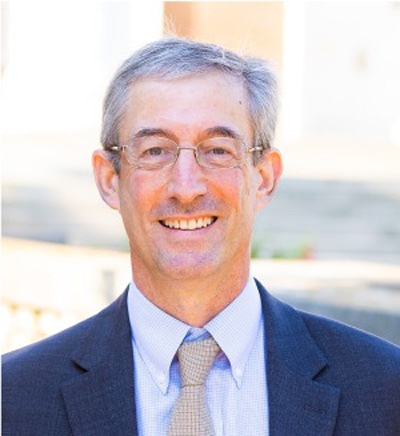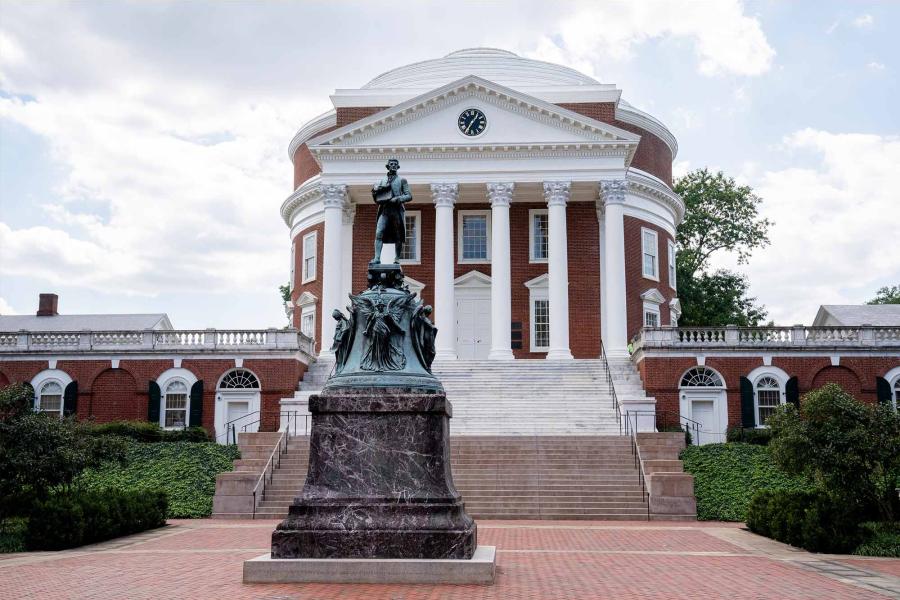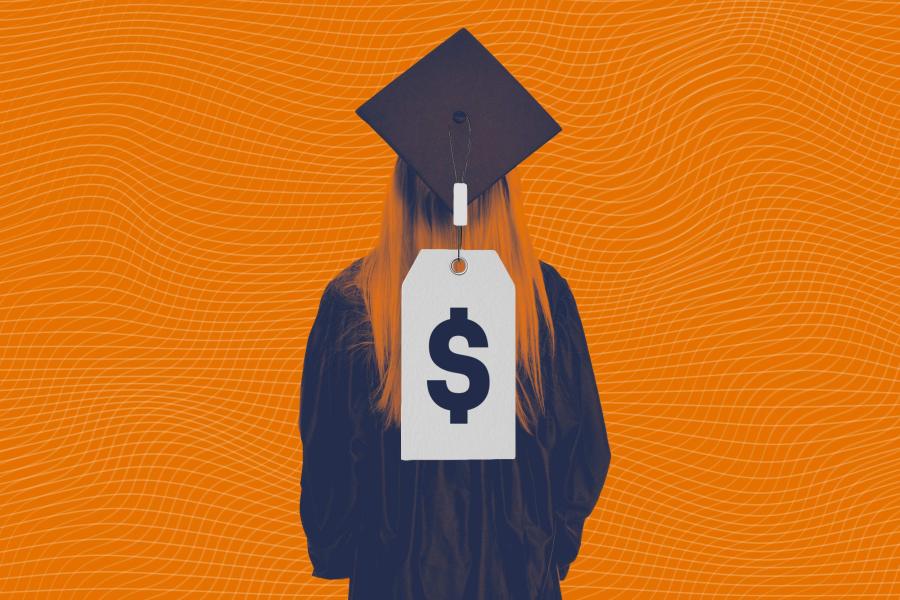When you're UVA Health, a trusted state health care provider, how do you better support distant patients with long COVID-19?
The short answer is "telemedicine."
Dr. Karen Rheuban, a professor of pediatrics and senior associate dean for continuing medical education and external affairs at the University of Virginia, is a telemedicine pioneer. She co-founded and still directs the UVA Center for Telehealth, which in 2016 was renamed the Karen S. Rheuban Center for Telehealth in her honor.
She recently helped land a total of $5.1 million in grants from the U.S. Department of Agriculture to support faraway or homebound patients living with the aftermath of the novel coronavirus.
Chronic pain and fatigue, brain fog and trouble breathing are among the symptoms that can make travel to a doctor all the more problematic. With telemedicine, "The providers can see you in your home or wherever you are," Rheuban said.
UVA's Office of the Vice President for Research is celebrating sponsored research like hers, which helped result in a record $532 million in external funding for the 2023 fiscal year - with grants of all sizes making the difference.
The USDA grant extends and expands the long COVID-19 services started by UVA's Dr. Kyle Enfield a year and half ago, partnering with a community program called Health Wagon, Rheuban said.

Dr. Karen Rheuban, senior associate dean for continuing medical education and external affairs, is a telemedicine pioneer. (Photo by Dan Addison, University Communications)
UVA also scaled up its virtual care services in general with the grant funds.
"The current tools for telemedicine allow a [technological] assistant to give me heart and lung sounds, vital signs such as heart rate and blood pressure, and even look in patients' ears," Enfield said. "This means that there is little lost in a telemedicine visit compared to an in-person visit."
He said he uses telemedicine to "see" patients in their homes when traveling to the clinic would be more of a challenge than a benefit for them.
"For patients with severe myalgic encephalomyelitis from COVID [which causes chronic fatigue], this can make the visits easier," Enfield said.
Although the grant funds are highly service-based, Rheuban said each year provides statistical insights that improve future service and inform the state's overall health picture.
Back in 1995, when Rheuban first pioneered telemedicine in Virginia, she was a pediatric cardiologist who, like so many other specialty physicians, was stretched too thin.
"Our pediatric cardiology team traveled to communities such as Bristol for two days every other month and saw as many as 100 patients per trip," Rheuban said. "But that meant the other 340 days of the year, the only option for those families was to drive to Charlottesville."

Fred Epstein is UVA's interim vice president for research. (Contributed photo)
Leading up to the pandemic, the service had saved patients 36 million miles of driving.
Post-pandemic, that number is exponentially higher, Rheuban said.
"Five years ago, UVA set a goal to reach $500 million in grant funding, and last year we surpassed that - by a lot," said Fred Epstein, who is serving as UVA's interim vice president for research. "Dr. Rheuban, who combines practice and service with excellent research, is one reason why. As others scrambled to implement telemedicine during and post-COVID, she already had the tools in place to help us reach patients in need."









